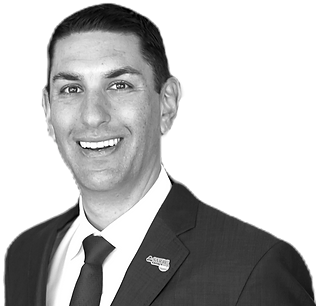As president and CEO of Southwest Autism Research & Resource Center (SARRC), Daniel A. Openden is often asked if he has a personal connection to autism.
“No one in my family or my wife’s family has autism,” he said. “The truth is, autism found me when some graduate students at the University of California, Santa Barbara, came to one of my classes to recruit undergraduate research assistants. Through hours of coding video as a data collector, I watched children, whom many people would have considered hopeless, transform before my eyes.
“Some kids who started off nonverbal were suddenly speaking in full sentences. Others who were highly aggressive later appeared calm and happy as they played with their parents. And parents who appeared to be dripping with anxiety about how to reach their child were now empowered, confidently teaching their child how to communicate and play.”
What Openden witnessed then, and the progress for those individuals and their families, directed his career path over the next 20 years. “The fact that people with autism can make meaningful progress, and in some cases, achieve extraordinary outcomes, gives purpose to the work we do each and every day,” he said.
Established in 1997, SARRC is a nonprofit that conducts research, provides evidence-based practices, disseminates training and builds inclusive communities for individuals with autism and their families. It aims to advance research and provide a lifetime of support for individuals with autism.
Since Openden became president and CEO in 2013, SARRC’s revenue and staff have more than doubled. It operates four facilities with a team of 225 and reaches thousands of children, teens, adults and families with autism each year. In 2010, 70% of SARRC’s revenue came from philanthropy and only 30% from earned revenue sources. By 2016, the organization had flipped those numbers, and now 70% of revenue comes from earned sources and 30% from donations, putting the nonprofit on more solid financial footing.
SARRC credits the flip in revenue sources in part to the passage of Steven’s Law in 2008. Prior to Steven’s Law, insurance companies considered autism an “exclusionary condition” and denied coverage for treatment. SARRC, in coordination with other autism organizations and in partnership with parents, led the passage of Steven’s Law, which required insurance companies in Arizona to reimburse providers for medically necessary applied behavior analytic services. Openden provided testimony at two Senate hearings, ultimately leading to the passage of the bill and making Arizona the fourth state in the country to mandate insurance coverage.
Each year, SARRC’s annual community breakfast brings together nearly 2,000 business leaders, educators, medical professionals, legislators and community champions to learn about autism and how they can build a more supportive, inclusive community. In 2006, PBS NewsHour did a two-part special on SARRC and the community it has created for people with autism, dubbing Phoenix “the most autism-friendly city in the world.”





